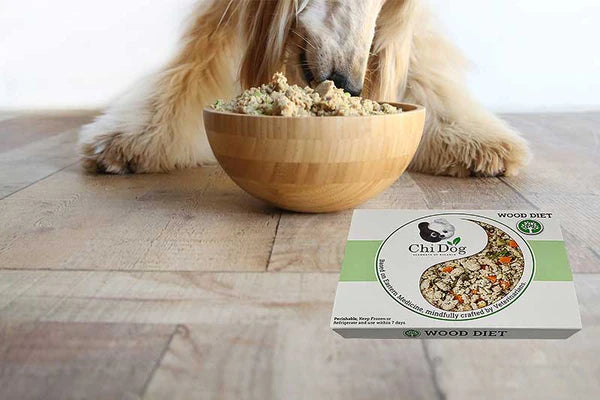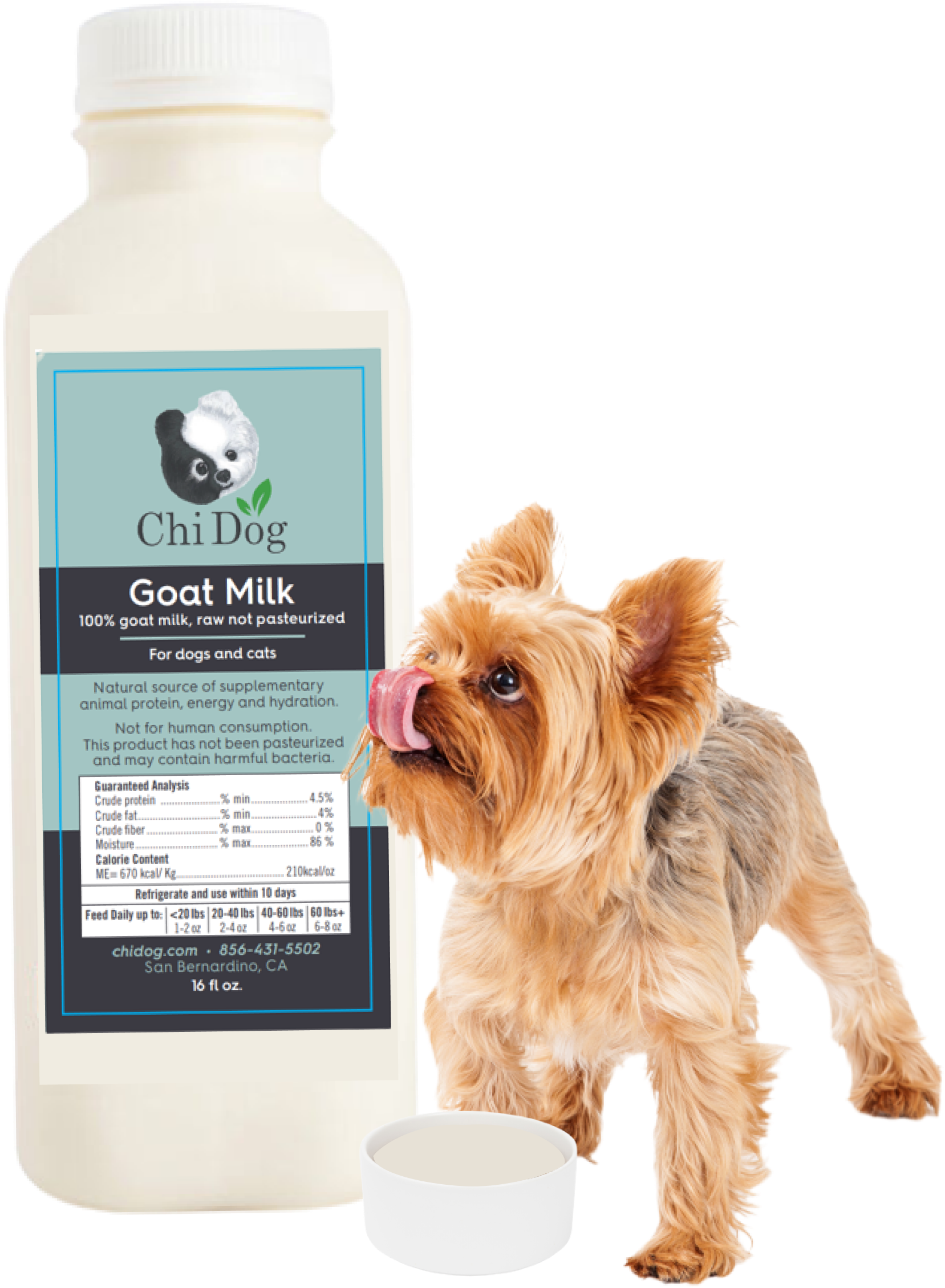
Intestinal Inflammation in Dogs: Choose Whole Food Instead of Processed Food

Introduction
For devoted pet parents, witnessing our furry companions suffer from health issues can be distressing. Among the various challenges dogs may face, intestinal inflammation, especially conditions like canine inflammatory bowel disease (IBD), stands out as a significant concern. What many may not realize is the profound connection between a dog's diet and intestinal inflammation. In this in-depth guide, we will delve into the critical relationship between diet and intestinal inflammation in dogs, highlighting the transformative impact that thoughtful dietary choices can have on our beloved four-legged friends.

Traditional Chinese Veterinary Medicine (TCVM) Perspective on Processed food and IBD
In our pursuit of understanding the intricate relationship between diet and intestinal inflammation in dogs, it's valuable to explore the perspective of Traditional Chinese Medicine (TCVM) Food Therapy. TCVM views inflammation, including that observed in canine inflammatory bowel issues, as often stemming from an imbalance in the body's vital energy, known as "Qi" (pronounced "chi"). These imbalances can manifest in various forms, such as excess heat, dampness, or even blockages in the flow of Qi, all of which can culminate in inflammation and the symptoms associated with IBD.
Heat and Damp in TCVM are described as inflammation in western medicine. Processed foods are well documented to be pro-inflammatory, increasing risks of cancer, obesity and diabetes in people. Newer research is even finding an association between processed food and cognitive decline. TCVM understands that to process a food is to put heat into it- thereby putting Heat/ inflammation in our bodies when we eat processed food.

The Quality of our Diet affects Intestinal Inflammation
The relationship between diet and intestinal inflammation in dogs cannot be overemphasized. As the name implies, Inflammatory Bowel Disease entails the chronic inflammation of the gastrointestinal tract. While the exact etiology of IBD remains somewhat elusive, it is well-established that diet can either exacerbate or ameliorate this condition. Western veterinary medicine focuses on a novel, (new) protein as the diet solution for IBD. TCVM focuses on the quality of the ingredients and the energetic properties of each whole food ingredient to balance the Spleen Qi improve intestinal inflammation in dogs.
One of the principal instigators of intestinal inflammation in dogs is the consumption of processed dog food.
Commercial offerings like kibble and canned dog food are frequently laden with artificial preservatives, additives, and subpar ingredients. These components can disrupt the delicate balance of the gut microbiome, paving the way for imbalances that contribute to inflammation. Additionally, the high starch content prevalent in many processed dog foods can engender further gut imbalances, stoking the fires of intestinal inflammation.
Processed dog foods often lack the vital nutrients required to bolster a healthy gut lining and a robust immune system. This leaves dogs vulnerable to inflammation and a myriad of digestive issues. To confront and mitigate intestinal inflammation, it is imperative to make informed dietary decisions that prioritize wholesome, natural foods over their processed counterparts.

Introducing the Water Diet for IBD
When it comes to combatting intestinal inflammation in dogs, one dietary approach that shines is the Water Diet. The Water Diet is made of:
-
human grade ground pork
-
Cooked sweet potato
-
Cooked barley
-
Green peas and watercress
-
Vitamins and minerals needed for balance
We use nothing but real cooked food + vitamins and minerals for balance
No organ meat
No oils or preservatives.
Ground pork advantageous for dogs contending with IBD because it si a novel protein for most dogs. The pork, sweet potato and barley are also very gentle on the GI from a TCVM Food Therapy perspective.
The simplicity and mildness of the Water Diet render it a gentle choice for dogs grappling with IBD. Its focus on whole, natural ingredients harmonizes seamlessly with the ethos of whole food therapy.

Chi Dog's Approach to Whole Food Therapy
At Chi Dog, we espouse a holistic approach to canine well-being, and this ethos extends to addressing intestinal inflammation through whole food therapy. We steadfastly maintain that a dog's diet serves as the linchpin of its overall health. Consequently, we've tailored our diets to align seamlessly with these principles.
Our dietary offerings, including the Water Diet, are thoughtfully crafted to pacify the digestive system and promote gastrointestinal health. We ardently prioritize whole, natural ingredients that exhibit kindness to a dog's stomach while imparting essential nutrients. By using only:
ground muscle meat with no rich organ meat
easily digestible grains
cooked vegetables brimming with nutrients
Our diets serve as invaluable allies in mitigating inflammation and alleviating the symptoms of IBD.
Whole food therapy, as championed by Chi Dog, stems from the belief that a dog's body flourishes when nourished with real, whole foods as opposed to their processed counterparts. Over the years, we have borne witness to numerous success stories of dogs experiencing respite from intestinal inflammation and enjoying enhanced overall well-being through our dietary approach.

Addressing the Connection Between Diet and Inflammation
As responsible and caring pet parents, it is important to us to prioritize our dogs' health and seek out dietary solutions that avoid processed, pro-inflammatory dry and canned dog food, especially for dogs with inflamed bowels. Through informed choices and an embrace of whole food therapy, we can empower our canine companions to lead vibrant, healthy lives.
Every meal we offer our dogs can either nurture their well-being or exacerbate their suffering. Let us choose wisely and with love, recognizing that our choices hold the power to heal and transform the lives of our cherished canine companions.



